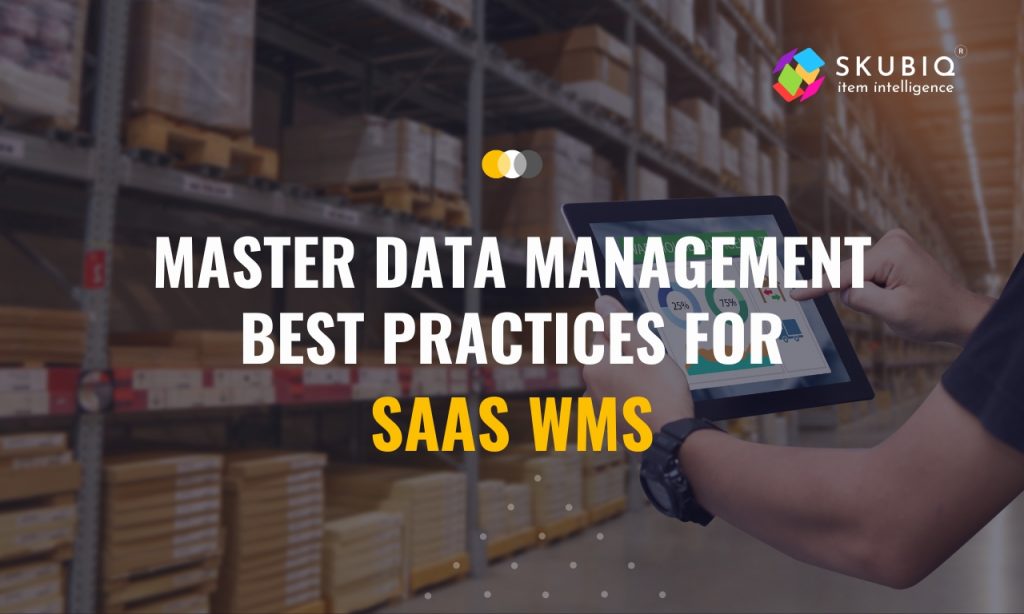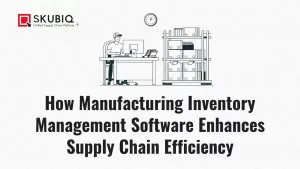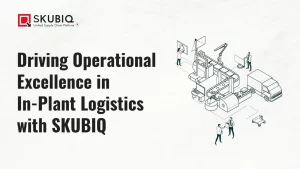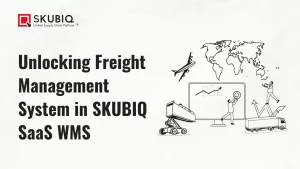As a leading provider of cloud-based warehouse management systems (WMS), Skubiq understands the importance of Master Data Management (MDM) in ensuring data accuracy, consistency, and efficiency. In this article, we’ll explore Master Data Management in SaaS WMS, its significance, and the best practices to follow to optimize your data management strategies.
What is Master Data Management (MDM)?
Master Data Management (MDM) is a crucial process for organizations using a Software-as-a-Service (SaaS) Warehouse Management System (WMS). MDM ensures that data related to items, customers, suppliers, locations, and inventory is accurate, consistent, and accessible to all users of the system, improving decision-making, operational efficiency, and customer service. Effective MDM in requires collaboration between different departments, defining data standards, establishing data governance policies, implementing data validation rules, and regular monitoring of data quality.
Why is MDM important in SaaS WMS?
In a SaaS WMS, Master Data Management plays a critical role in maintaining accurate and consistent data across the organization. With a centralized database accessible to all users, MDM ensures that all data is consistent and up-to-date, regardless of where it’s entered into the system. This ensures that all users have access to the same data, eliminating confusion, reducing errors, and increasing efficiency.
To ensure effective MDM in a SaaS WMS, there are some best practices to follow, including:
1. Establish Clear Data Standards
The first step in effective Master Data Management is to establish clear data standards for all items, customers, suppliers, locations, and inventory. This includes defining naming conventions, units of measure, and other critical data elements that need to be standardized across the organization. This ensures that all users of the system are entering data in a consistent format, reducing errors and improving data quality.
2. Implement Data Validation Rules
Implementing data validation rules is another critical step in effective Master Data Management. This involves setting up automated checks and validations to ensure that all data entered into the system meets the defined data standards. This includes validating data against pre-set rules, such as mandatory fields, data types, and value ranges. Data validation helps to improve data quality and ensures that only accurate data is entered into the system.
3. Collaborate between Departments
Master Data Management is not just an IT function; it requires collaboration between departments to be effective. This includes involving stakeholders from various departments, such as logistics, purchasing, and finance, to define data standards and governance policies. Collaborating between departments ensures that everyone’s needs and requirements are considered, leading to more comprehensive and effective MDM.
4. Establish Data Governance Policies
Establishing data governance policies is essential for effective Master Data Management in SaaS WMS. Data governance policies are a set of rules and procedures that define how data should be created, managed, and maintained. This includes data ownership, access controls, and data retention policies. Clear data governance policies ensure that all data is managed and maintained consistently, reducing errors and improving overall data quality.
5. Regularly Monitor Data Quality
Regular monitoring of data quality is crucial for effective Master Data Management. This includes setting up automated data quality checks and reports to identify any inconsistencies, errors, or gaps in data. Regular monitoring of data quality ensures that any issues are identified and resolved quickly, leading to more accurate and reliable data.
Conclusion
Skubiq, a leading provider of cloud-based WMS solutions, understands the importance of Master Data Management in ensuring accurate and efficient warehouse management. By following the best practices for MDM in SaaS WMS, businesses can benefit from improved decision-making, operational efficiency, and customer service. Skubiq’s state-of-the-art WMS solutions incorporate effective MDM to help businesses maintain accurate and consistent data across the organization. With Skubiq’s expertise and innovative solutions, businesses can stay ahead of the competition and meet their customers’ demands with ease.



